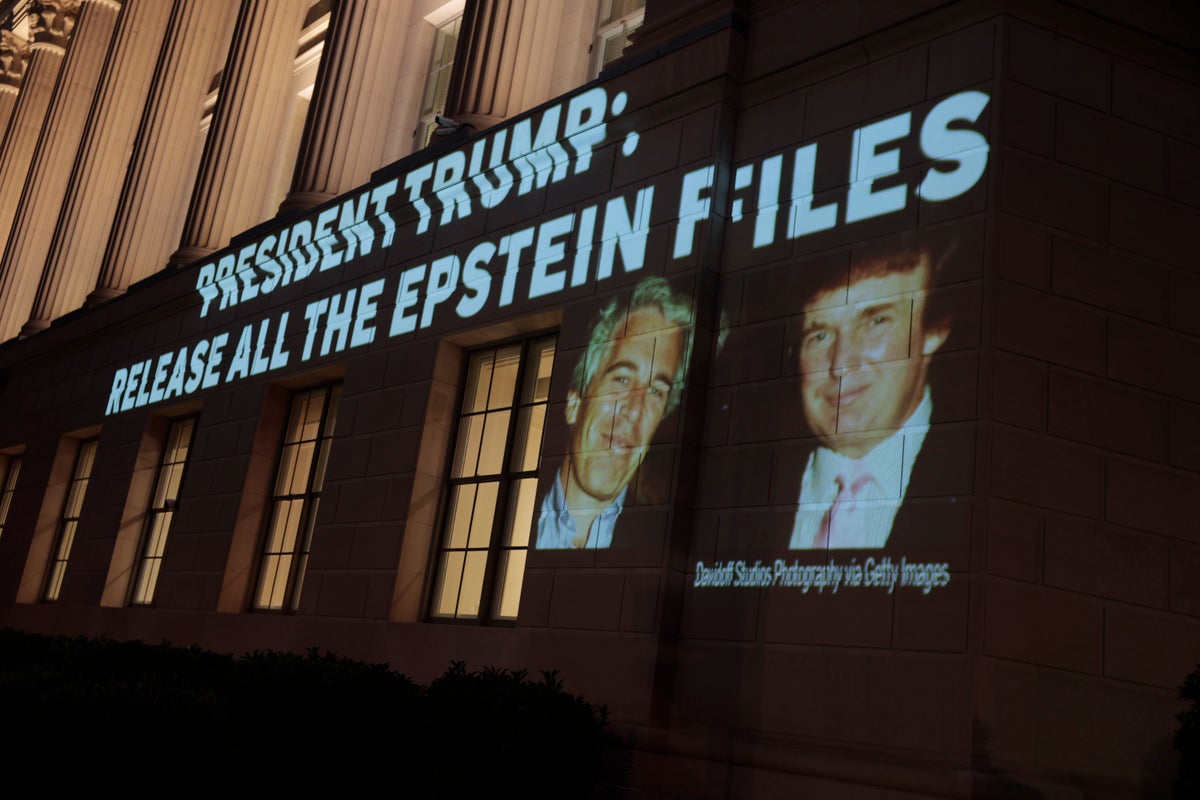
The former prince, Andrew Mountbatten Windsor, fell into disgrace after it was revealed that he kept in contact with Jeffrey Epstein after the financier was convicted of sex crimes in 2008 in a “sweetheart deal” that largely allowed him to escape judgment for his crimes.
But were Washington’s elite held to those same standards, there would be plenty of disgrace to go around.
On Wednesday, another trove of email chains involving Jeffrey Epstein and his former girlfriend, Ghislaine Maxwell, was released by the House Oversight Committee’s members, which include both Republicans and Democrats. The emails revealed startling insinuations about Donald Trump himself, including one where he wrote to a biographer that Trump “knew about the girls”. The White House and Trump have strongly denied that the president knew about any illegal activity.
The emails released on Wednesday also centered a second spotlight on Epstein’s other associates, however, and some illustrate clearly the wide range of the alleged sex trafficker and convicted pedophile’s connections to America’s political establishment, in several cases after his public reputation was already sullied by a conviction for soliciting an underage girl for prostitution.
They included messages to two men who have been key figures in both the pre-Trump and post-Trump D.C. political world: Larry Summers, former secretary of the Treasury under Bill Clinton and director of the National Economic Council under Barack Obama, and Steve Bannon. Once a White House official in Trump’s first term and formerly head of Breitbart News, Bannon remains a spiritual leader of the populist MAGA right through his War Room podcast and retains a grip on a large portion of the Trump-aligned voter base.
Epstein’s reach didn’t stop there, of course.
It extended to friendly emails with Michael Wolff, the well-connected D.C. journalist and biographer whose books about Donald Trump have invoked the president’s fury. It extended to Reid Hoffman, a Democratic megadonor and tech CEO who co-founded LinkedIn and most recently supported both Joe Biden and, later, Kamala Harris’s 2024 campaigns for the presidency. In 2016, he was chatting with Noam Chomsky, often considered a luminary of American left-leaning anti-corporatist political thought. He also had conversations with Doug Band, a key member of Bill and Hillary Clinton’s inner circle, though Band’s conversations seem to have stopped before Epstein’s conviction.
There’s the foreign angle, too: In 2013, Epstein was emailing with Israel’s then-defence minister, Ehud Barak, according to emails obtained by Drop Site News. The two met in Manhattan, at Epstein’s home, one month after Barak left the government, and the news outlet reported that an extensive backchannel existed between Epstein and Barak’s personal email account during the latter’s time in government. Drop Site has reported those emails continued all the way through the mid-2010s, as Epstein attempted to use his influence to broker a meeting between Barak and Vladimir Putin aimed at halting the conflict in Syria.
Inconsistent as the political leanings of his friends were, there was one thread that remained true throughout: Epstein’s attraction to political power. His energetic networking with mid-to-high-profile political figures suggests that the billionaire sex criminal cared most about maintaining a connection to whichever factions were dominant or at least carried importance in Washington.
He emailed with a former Obama White House counsel during the last year of the 44th president’s term. His conversations with Bannon took place in 2018, one year after Bannon was unceremoniously ousted from the White House by John Kelly. Summers, who emailed Epstein his detailed thoughts about Trump’s political strength in 2017, was still a leading voice heading into Joe Biden’s presidency, which began in 2021.
Apart from Band, who cut contact with Epstein earlier, there’s little sign of any enmity towards a man who was credibly accused of running a sex trafficking ring involving girls as young as 12. Bannon, who corresponded with Epstein in 2018, appeared to be aligned with the billionaire as he wrote that together they could build a populist, nationalist conservative coalition that would “staves [sic] off Time’s Up for a decade” — a revealing look at their thoughts on a movement aimed at exposing men who used positions of power to cover up sexual crimes and misconduct. Summers’s emails to Epstein read as private opinions and off-color thoughts shared only among close friends.
“I observed that half of the IQ in the world was possessed by women,” wrote Summers in October of 2017, “without mentioning that they are more than 51 percent of the population…”
“DO NOT REPEAT THIS INSIGHT,” that email concluded.
In reality, the emails confirm a long-held suspicion for many Americans: In D.C., like Hollywood and the media industry, “disgrace” often lasts only as long as the public’s attention span. Why else would so many powerful men be corresponding with a man accused of heinous crimes that have now enveloped much of the American right and left in a fervor to expose?
The answer may be simply that they never expected that attention to amount to anything serious, and likely thought that the American justice system’s penchant for protecting the powerful would rise to the occasion again.
